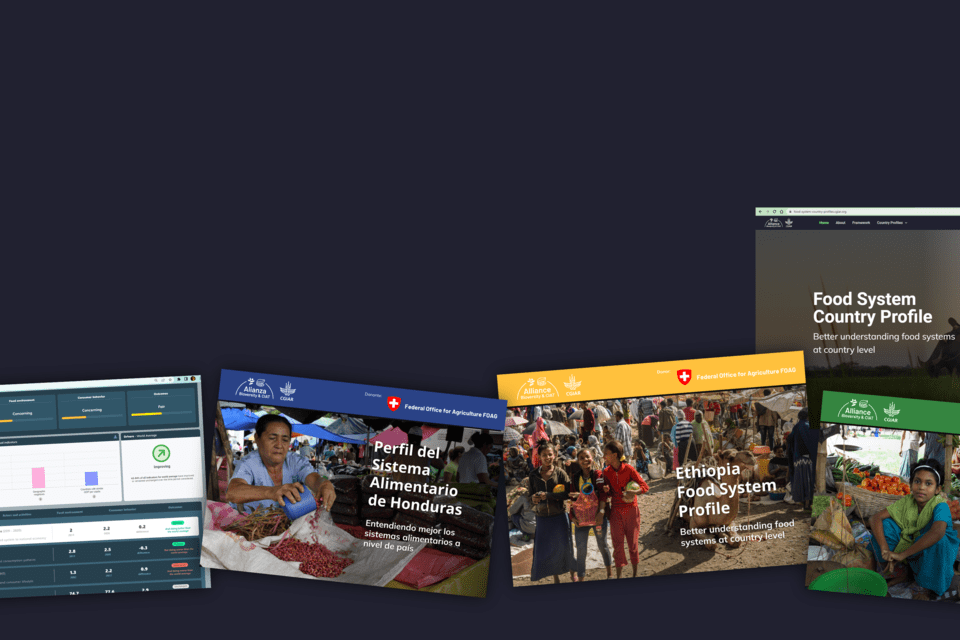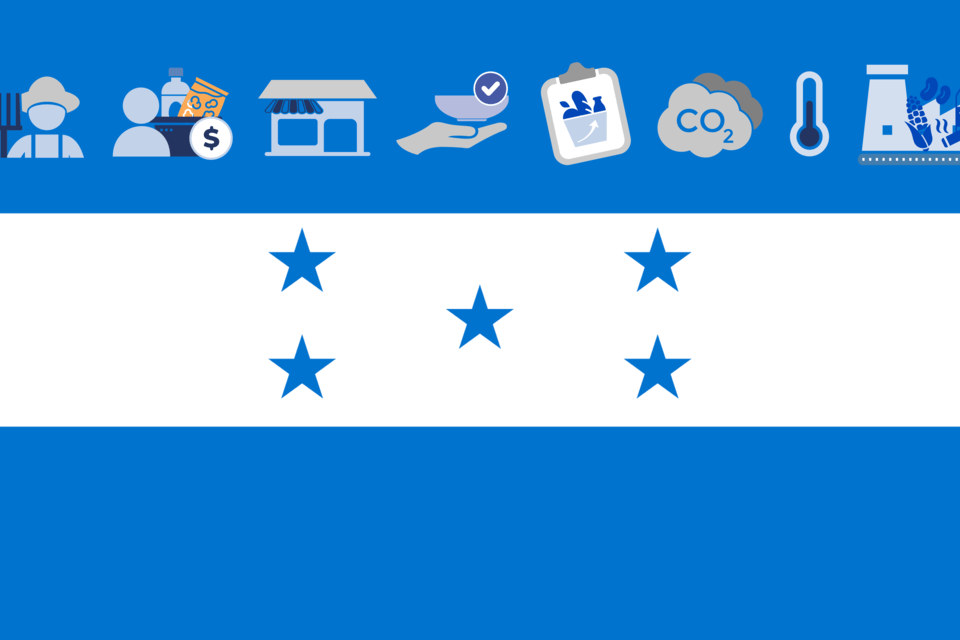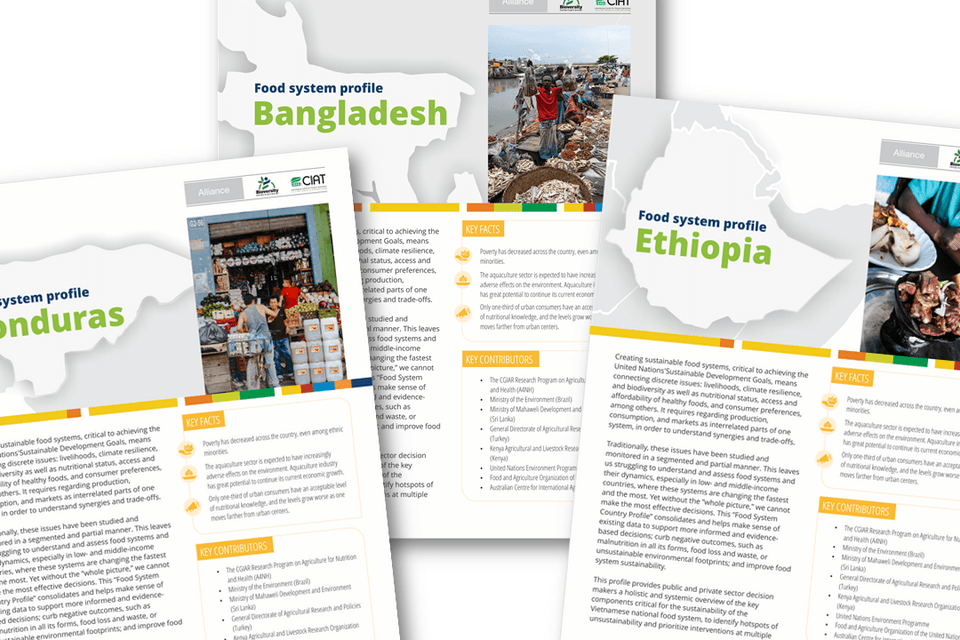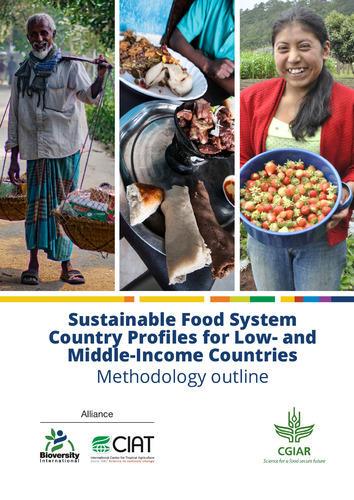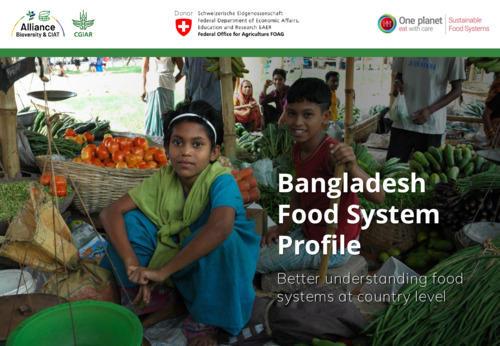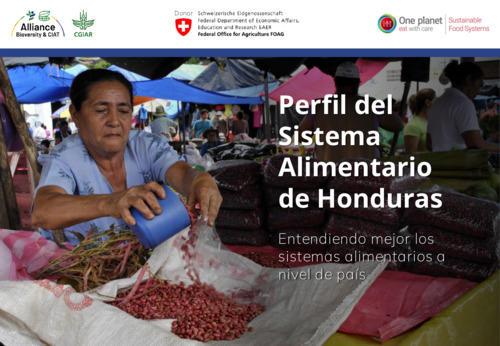Food System Country Profiles
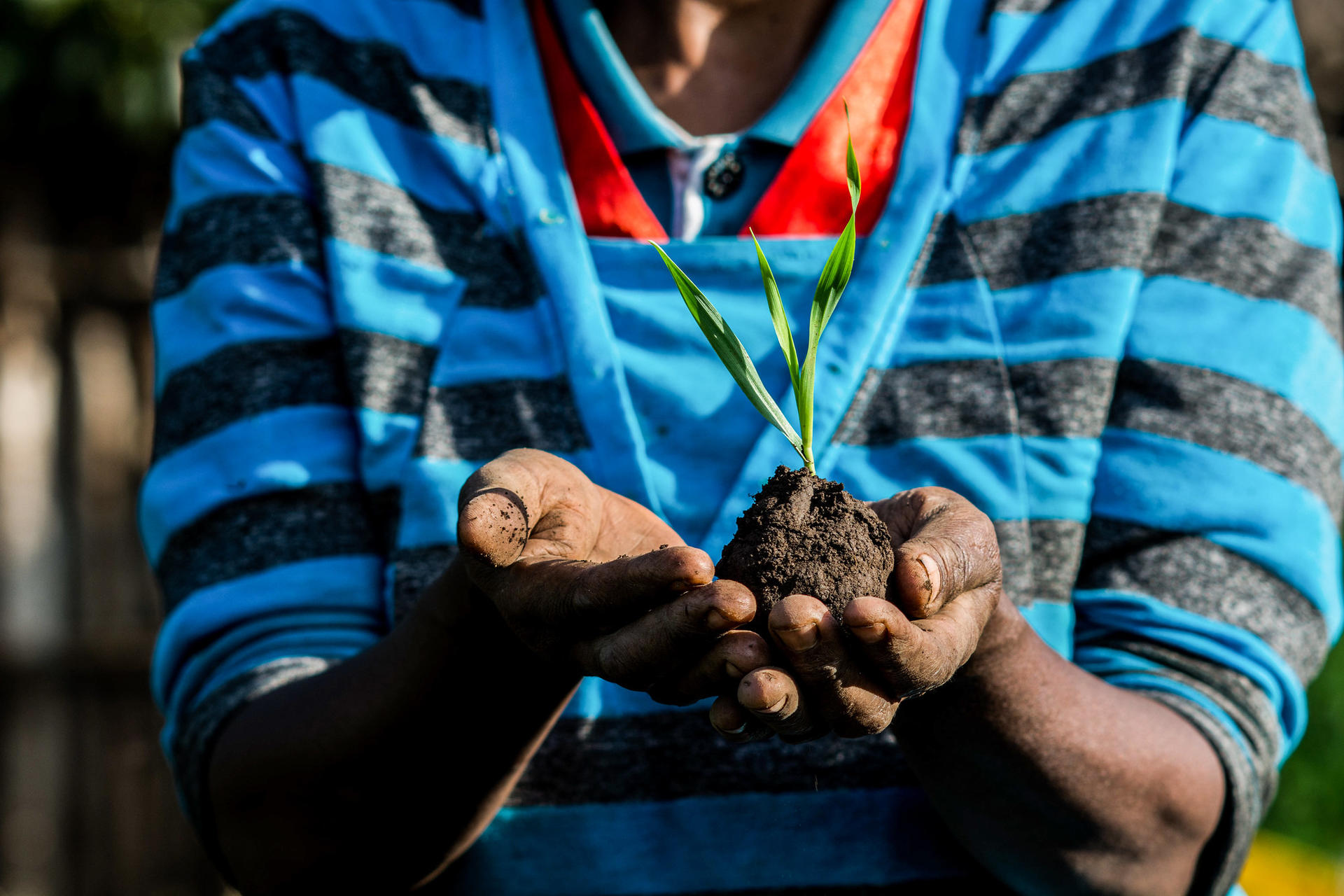
As nations prepare to meet the challenges set by the first United Nations Food Systems Summit – “bold new actions to transform the way the world produces and consumes food” – decision-makers need to know where their countries stand. Until now, however, only fragmented and disparate datasets have existed for many nations, hindering the effectiveness of actions to improve nutrition, reduce hunger and increase production and market efficiencies.
To address these information gaps, the Alliance’s Food Environment and Consumer Behavior research team is assembling Sustainable Food System Country Profiles for low- and middle-income regions. In partnership with the Swiss Federal Office for Agriculture, researchers are working on profiles for Bangladesh, Ethiopia and Honduras, countries with food systems that are broadly representative of those found across low- and middle-income countries. These profiles, developed in close collaboration with food systems actors in those nations, will provide critical information and analysis to identify hotspots of unsustainability in food systems and allow public and private sectors to make evidence-backed interventions and investments to improve their food system sustainability. The profiles follow the model of the Alliance’s successful profiles series for climate-smart agriculture, digital agriculture and risk assessment, and will provide a template for additional food systems profiles of other countries and regions.

